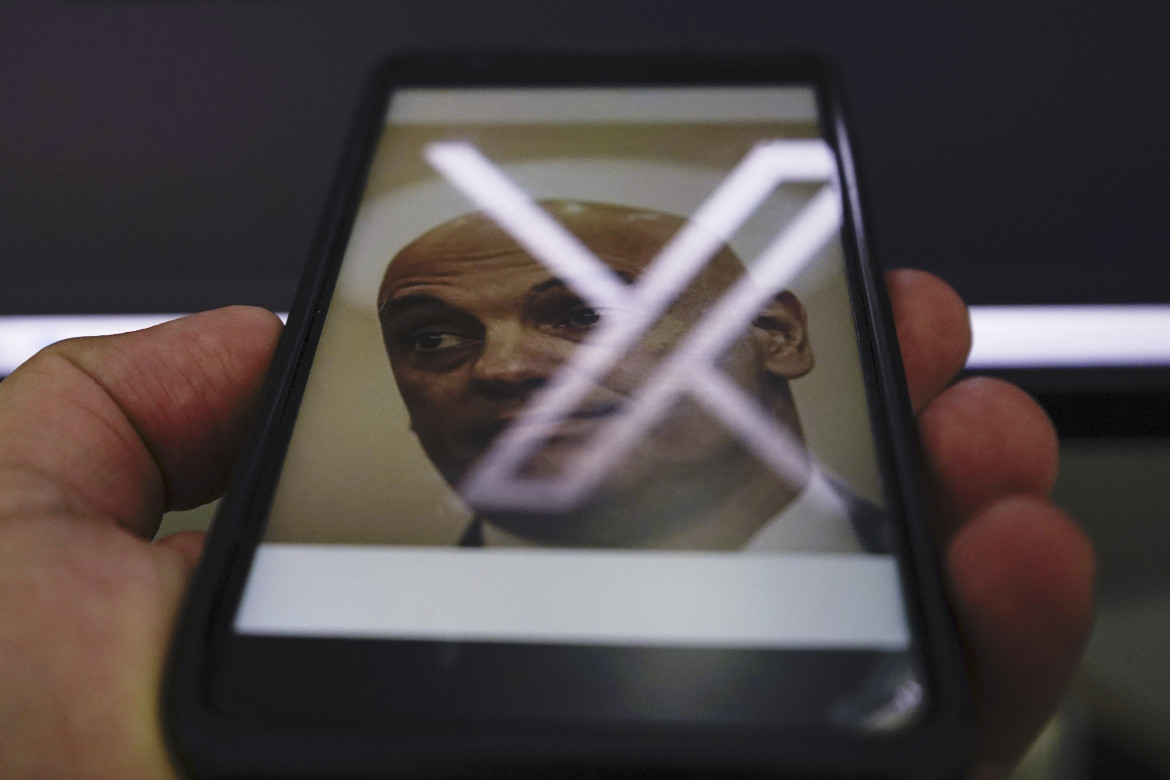Analysis
Musk, the ‘free speech defender,’ and his latest clash with Brazil
X refuses to take down racist tweets but deletes thousands upon the request of Erdogan. Some speech is more free than others on Elon Musk's platform.

Is Brazil beset by censorship and facing the end of free speech? Is Musk really a defender of rights? Even setting aside his biography, the questions about the origins of his riches, or the questionable ways in which he chooses to express himself, that thought might bring a bitter smile to the 13,000 workers he fired from the social network since he became its owner. And they might stir outrage in the hundreds of “moderators” who were dismissed with an email because their role at soon-to-be-renamed “X” had suddenly been deemed useless.
Still, questions about censorship and free speech have been swirling recently. Notably, on Saturday, just about every right-wing leader across the world joined in a chorus on X in support of Elon Musk's own words from a five-day-old tweet posted on Wednesday in which he angrily responded to Brazilian judge De Moraes’s order that X should appoint a legal representative in the country, under a tight deadline and on pain of suspension. Musk’s cry of “censorship” was dutifully amplified by those who have a cordial relationship with the world's second-richest man: on Saturday, most echoed the word and the accusation against the Brazilian judge in short tweets or Facebook messages – everyone from Trump to Italy’s own Simone Pillon, another unlikely figure.
What about everyone else? They chose to respond not with 240-character screeds, but with facts. Everyone listed hard facts against Musk’s claims: from digital rights activists, starting with one of the most influential, Paris Marx, to none other than Anonymous (@anonymousCentral). The latter account, while it doesn’t have official authorization to speak on behalf of the hacker collective of strange and amorphous identity, posted on Saturday that it wasn’t enough for Brazil to suspend X: it should ban it outright.
For the facts to come into view, we need to take a few steps back. Even further than a few weeks ago, when Elon Musk clashed with the new government in London after his app was used to incite British rioters to violence as a result of the spread of false news about the murder of a little girl by a migrant. Musk’s comment on those criminal acts was that “a civil war is inevitable in England.” Then, after Prime Minister Starmer hit back in no uncertain terms, Musk again took up the mantle of denouncing attempts at censorship. The racist tweets, of course, are still up.
And we should go even further back than the (still not finalized) EU investigation into X’s violation of European laws that would force it to moderate content on the platform and fight the dissemination of fake news.
To fully understand what Musk really means by “free speech,” one of the key events came a few months before: in April, in India. The story begins in England, when the BBC aired – exclusively in the UK – a documentary which told the story of Indian PM Modi’s responsibility for the massacres in Gujarat at the time of the riots that took place 23 years ago. The ever-zealous Indian government, having made sure that no local TV channel would air the documentary, also mounted preemptive attacks against other kinds of media: it ordered X/Twitter to “censor” all posts and links to the video, which had already been uploaded to YouTube channels. About fifty tweets escaped this takedown; they were immediately noticed, and the New Delhi government sent a request to have them deleted. X dutifully complied within 20 minutes. Weeks later, when a British journalist asked him about these acts of censorship, Musk said: “The rules in India for what can appear on social media are quite strict, and we can't go beyond the laws of a country.”
For another example, we can go even further back, to Turkey in May 2023, during the campaign leading up to Erdogan's re-election. Around 40,000 posts vanished from the Musk-owned social network, and thousands of accounts were “mysteriously” suspended. It turns out the incumbent government, i.e. Erdogan himself, had asked for that. Here as well, a few journalists – among the few willing to ask real questions – asked Musk for an explanation. His answer was more or less the same: “The choice is [to] have Twitter throttled in its entirety or limit access to some tweets.” He chose the latter.
One could go on and on. But the point would always be the same: it’s not rocket science to figure out that X is dutifully complying with national laws only when right-wing governments ask it to.
Everywhere else, in other countries and continents, Musk uses it to pursue his self-assigned role as a follower of the TESCREAL ideology. The acronym (“Transhumanism, Extropianism, Singularitarianism, Cosmism, Rationalism, Effective Altruism, and Longtermism”) was coined by one of the leading scholars on the world of digital capitalism, Timnit Gebru – kicked out of Google because she had denounced the risks of its research – and, to make a long story short, it is the creed of arch-billionaires who have appointed themselves the task of designing the future of humanity, starting with their pet project, artificial intelligence. Musk's startup in that sector has already raised six billion dollars, funded largely by Saudi prince Bin Talal, also a major investor in X/Twitter.
Most likely, real freedom of speech lies elsewhere. It does not lie with those who invoke “sovereignty” when defending attacks against migrants in England but then fail to respect the norms of sovereign countries. It lies somewhere else – and, it’s important to add, that somewhere is not social media. Any of them. Maybe only Signal – but that's another story.
Originally published at https://ilmanifesto.it/lultimo-scontro-per-i-diritti-di-un-tycoon-che-obbedisce-solo-alla-destra on 2024-09-01
